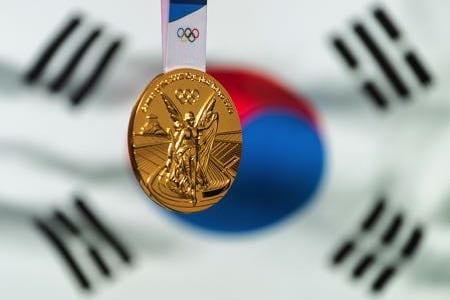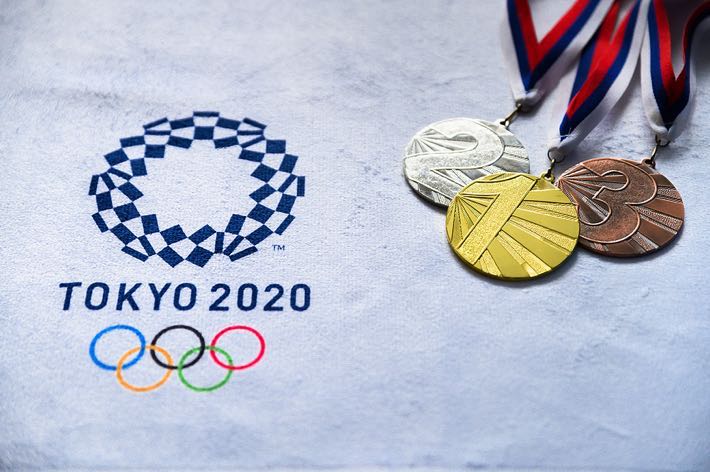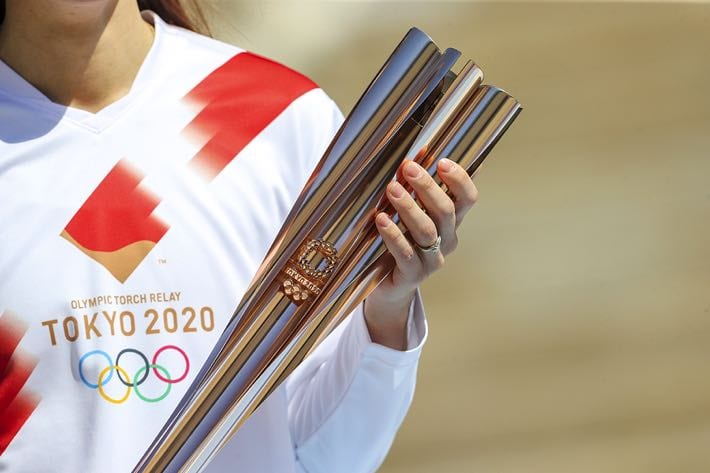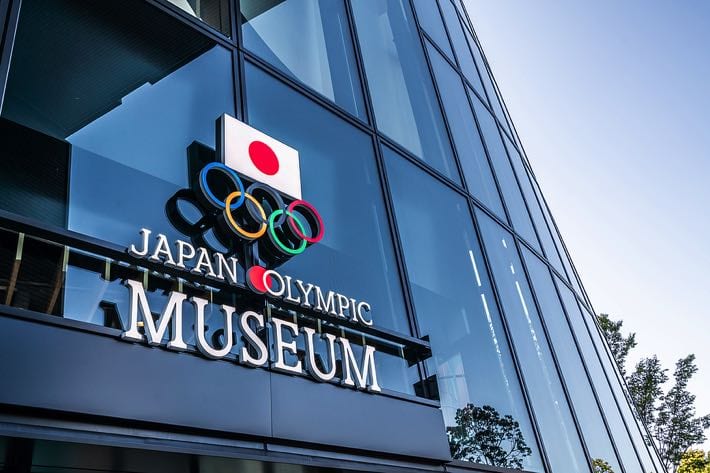
The Modern Olympic Games, often referred to simply as the Olympics, is known by many as The Greatest Show On Earth. For most sportspeople, it is the culmination of their work over the years preceding it, with the Summer Olympics offering a showcase to swimmers, runners, gymnasts and a wealth of other sportspersons in between. More than 10,000 people competed in Rio in 2016, but the 2020, Olympics was delayed.
The question on the lips of everyone that cares is ‘for how long?’ The global health crisis that saw sports cancelled across the planet has still not abated, with Tokyo primed to host the tournament of tournaments in late July. That is just two months away at the time of writing, leading many to wonder whether it will go ahead at all with things as they are, not only in Japan but all around the world. It’s a question that lacks a definitive answer.
The Original Plan

The modern version of the Games of the Olympiad were first held in the Greek city of Athens in 1896, going on to be held every four years apart from during the two World Wars. That means that, with the exception of 1916, 1940 and 1944, there has been a Summer Olympics every four years or so. When the Games concluded at Rio in 2016, athletes began gearing up to take part in them in Tokyo four years later.
Japan was chosen as the host nation for the Games of the XXXII Olympiad after appealing for the honour alongside Turkey and Spain, with Istanbul and Madrid being the main cities that were vying for the honour of being hosts. Japan gained the most votes in the first round of voting, with Turkey defeating Spain in the runoff before Japan won by 60 votes to 36 in the second round of voting to claim hosting duties.
Tokyo was deemed to be the ‘safe choice’ as hosts, by the media, based on the political and economic uncertainty that was being suffered around the world at the time of the 2013 voting. That was in spite of the Fukushima nuclear crisis that was engulfing the country prior to the vote. Tokyo had previously held the Olympics in 1964, meaning that voters saw it as a choice between ‘going to new shores’ or ‘staying with a more traditional candidate’.
Tradition won out, with the sportspeople that were likely to take part in the event gearing up for a Japanese Olympics in 2020. The United States had topped the medal table for the second time in succession in 2016, making it their 17th time at the top overall, whilst Team GB improved upon their third place on the table in 2012, when they were hosts, with a second-place finish in Rio. All eyes turned to Tokyo.
What Went Wrong
As the year of the Olympics arrived, all was set for the Greatest Show On Earth to get underway. Then the world essentially stopped in its tracks. Sporting events began to be cancelled left, right and centre and international travel was restricted in a severe way. Concerns about Japan being able to host the Games were raised, not only because of the potential impact on athletes but also on visitors heading to watch the Games take place.
The organisers insisted that they were keeping an eye on developments, with the hope being that they’d be able to minimise any impact on preparations for the Games. Whilst there had been concerns about Zika in the build-up to the 2016 Olympics in Rio, this was different because that was spread by mosquitos rather than human-to-human. The plan remained to have the event held in Tokyo, but soon that began to change.
When qualifying events for the Games began to be affected, there was an acceptance that the Olympics almost certainly wouldn’t be able to take place in the summer of 2020. The likes of women’s basketball, boxing and women’s football all had to be altered, then later in 2020 a host of different sports had their qualifying events postponed or even cancelled altogether.
Another issue arose when the mandatory doping tests that athletes had to carry out couldn’t be done. There was a fear that the staff carrying out blood and urine tests would be put at risk, with anti-doping agencies in China, France and the United States of America, amongst other countries, reducing how much work they were willing to carry out. Pressure was soon on the International Olympic Committee to delay the Games.
The Games Are Delayed to 2021

On the 2nd of March, 2020, the Tokyo Organising Committee released a statement that they were continuing their preparations ‘as planned’, with a member of the International Olympic Committee confirming the following day that everything would go ahead as planned. This remained the official stance, despite many objecting to the idea in the weeks that followed the initial statement from the TOCOG and the IOC.
A joint statement from both organisations on the 24th of March, 2020, confirmed that the Olympics and the Paralympics would be rescheduled, with the idea being that they would happen ‘beyond 2020 but not later than summer 2021’. Six days later and another announcement confirmed that an agreement had been reached for the opening ceremony to take place on the 23rd of July 2021.
Even though the Winter Olympics were scheduled to begin in Beijing on the fourth of February 2022, less than six months after the start of the delated Summer Olympics, the refusal to cancel the event was seen as ‘the light at the end of the tunnel in which the world finds itself at present’. The Olympic torch, it was said, would ‘stand as a beacon of hope to the world during these troubled times’.
Will They Go Ahead?
As part of the plan to allow the Olympics to go ahead in July of 2021, the International Olympic Committee began to release ‘playbooks’ about the biosecurity measures that would be in place. Alongside all of the things that have become standard for everyone when out and about in public over the previous 18 months, anyone involved in the Olympics will be restricted from visiting restaurants, bars, shops and any areas where there might be large numbers of people.
Athletes have been discouraged from ‘excessive celebrations’, amongst other plans that, it is hoped, will at least allow the Games to take place. Whether that will actually happen remains unclear, however, in spite of the fact that we are now counting down the time that they should get underway in weeks rather than months. A poll carried out in mid-April revealed that 70% of Japanese people don’t want the Games to go ahead, even though it was just 100 days away.
No Foreign Visitors Allowed

With a state of emergency declared in Tokyo just three months before the Olympics were due to get underway, it’s hardly surprising that few Japanese people want them to happen. It’s also worth noting that the likes of theme parks, department stores and restaurants remained closed in the city well into April, so the idea of hosting thousands of athletes must seem crazy to the people that call Tokyo their home.
The banning of overseas spectators means that most events are likely to take place without a crowd at all. A decision on whether members of the Japanese public will be allowed to attend will be delated until just weeks before events are due to get underway. It means that, whatever happens, it will be a significantly different Summer Olympics to anything we’ve seen before, with even the opening and closing ceremonies likely to be muted.
Some Athletes Won’t Travel
For athletes, the situation is remarkably strange. On the one hand, they have spent the best part of four years or more gearing up to take part in what should be the pinnacle of their career. On the other hand, they’re potentially being asked to put themselves in harm’s way for the purposes of sport. It is difficult for any Olympic organising committee in any country to lay down a hard and fast rule of how their athletes should respond.
For some, there has been a move to get their athletes the jab as a matter of priority. This will obviously make many feel safer, but not all of those that should be taking part in the Olympics will feel that this gives them the ability to do so. If the original decision to delay the Games from 2020 to the following year was designed to give everyone time to get things sorted, it’s possible that it wasn’t enough time.
Despite officials declaring that having the jab is not a condition of being able to compete in the Olympics, many will feel that if they don’t have it then they will not be confident of flying to Tokyo. Given that there will be as many as 15,400 Olympic and Paralympic athletes in attendance for the two games, you can hardly blame some for being sceptical about the ability to keep them safe within a ‘bubble’.
It May Come Down to Money

As is so often the case, it’s likely that whether or not the Olympic Games go ahead in a couple of months will be all about money. Tokyo 2020 was already on course to be the most expensive Olympics ever staged, with the total cost increasing to around £14 billion after the delay. It is believed that delaying the Olympics by a year added more than £2 billion to the overall cost, with in the region of £18 billion of that being public money.
That is an incredible amount of money to be spent on something that ends up not taking place, which is why many are convinced that it will be the financial implications that cause the Games to go ahead as planned. In Britain, the delay alongside the reason for it has meant that some sports are at genuine risk of collapsing, largely because of a complete lack of revenue streams to support them.
Whilst the International Olympic Committee does have insurance that is underwritten by Lloyd’s of London, it is not clear what exactly that can be used to pay for. With sports being under threat and a fear of billions of pounds essentially being wasted, it is difficult to imagine a world in which the Olympic Games don’t take place. That being said, 18 months ago it would have been difficult to imagine most of the things that we’ve endured in the time that followed.